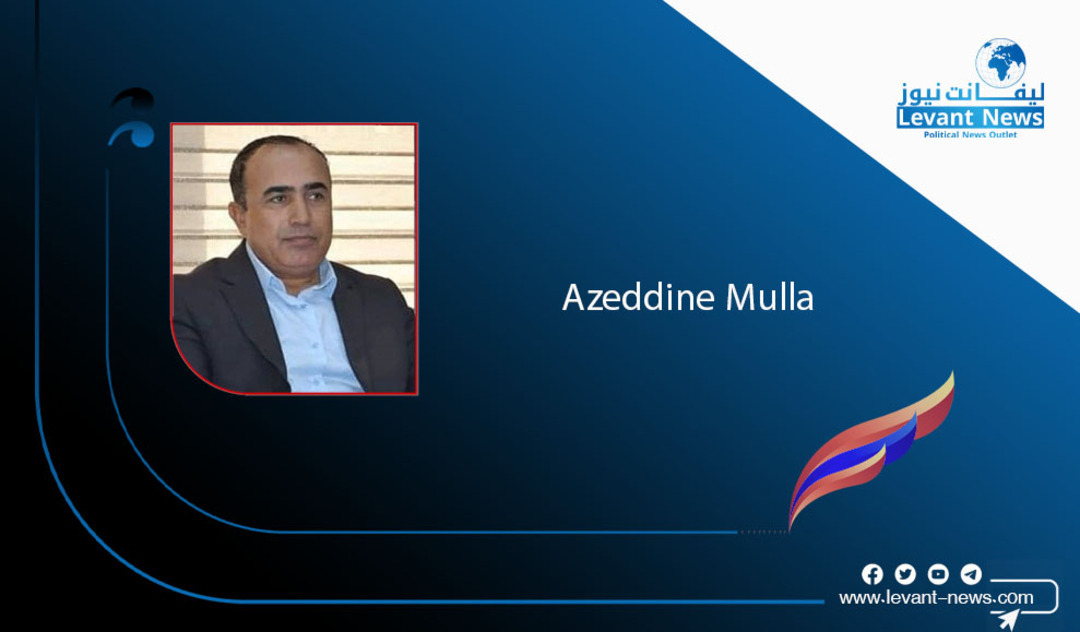-
The Kurds at the Intersection of Geography and Politics

As rapid changes continue to unfold in the Syrian scene, the Kurdish issue appears to face a strategic challenge that is not only about their immediate demands but also about their positioning within a comprehensive national project that redefines the Syrian state itself. Regional and international transformations, along with the decline of military dominance as a tool for changing realities, are compelling all parties to reconsider their political tools, moving beyond slogans and extreme stances.
The approaches of imposing facts on the ground through weaponry are no longer capable of producing permanent or legitimate solutions, especially in an international environment reaffirming adherence to the nation-state framework as the sole reference for any political solution. In this context, political realism becomes an essential condition for any serious Kurdish project seeking recognition and justice—not through confrontation, but through engaging in negotiation processes that guarantee partnership and rights within a decentralized democratic state.
Understanding the dimensions of the Kurdish issue requires going beyond narrow views of political demands and shifting toward building a comprehensive national vision that embraces diversity and promotes justice. Thus, Kurdish rights should become an integral part of the national project reflecting the will of all Syrians.
The Syrian experience since 2011 has demonstrated that all military projects, regardless of their scale, are temporary by nature and lack international legitimacy and broad popular acceptance. Additionally, the new Syrian state—supposed to emerge from the ashes of tyranny—will not tolerate the existence of parallel armies or de facto authorities, regardless of their identities or intentions. The pluralism envisioned for Syria's future cannot flourish in an environment filled with weapons; instead, it requires an open political space, a constitution that guarantees rights, and democratic institutions that preserve diversity and protect freedoms.
All armed factions, including those with a Kurdish character, will find themselves obliged to integrate into a unified Syrian national army. Given their historical and social stature, the Kurds have a unique opportunity to transition from a local presence to an active partner at the national level, through participation in building the country's future based on citizenship and decentralization. The real strength of the Kurds today does not lie in arms but in the justice of their cause—manifested by Kurdish unity established through the Convergence of Unity—and their capacity to engage in a comprehensive national project aimed at rebuilding Syria and ensuring the rights of all its components.
The current moment calls on Kurdish actors, especially the Kurdish National Council, to move beyond traditional rhetoric and consider their positioning within the national equation, not on its margins. The Kurdish issue cannot be solved from the perspective of a “special regional,” but within a consensual national framework that grants Kurds the right to determine the form of their participation, not their marginal fate. Amid rapidly changing geopolitical realities, relying on external powers for influence or securing gains is no longer feasible. True protection for the Kurds, like all Syrian components, lies in the state that respects rights—not in temporary balances that collapse at the first regional change.
Since political decision-making remains centralized in Damascus, it is essential for the Kurdish National Council, as the most politically connected representative of the Syrian revolution and national movement, to recognize that its core activity must be in the capital. From Damascus, the constitution is drafted, laws are discussed, and the features of the state are defined. Moving to Damascus is not a mere symbolic step but a strategic decision that cements national belonging and grants the council broader political and societal legitimacy. The solution in Syria will not be born in isolated enclaves or through external military operations, but through internal dialogue and the reconstruction of Syrian institutions by a collective national will.
Remaining on geographical margins or investing in unrecognized local authorities will only lead to more isolation and marginalization. The Kurds must shift their political influence to where decisions are made and work from within the political process to shape a new Syria. Politics is not just about presence; it’s about influence and creating alternatives—something only possible from within the true political center.
The Kurdish issue cannot find resolution without a comprehensive national dialogue involving all Syrian national forces, including Arabs, Kurds, Syriacs, Assyrians, Alawites, Sunnis, Druze, and others. The Kurds are not alone in this land, and any project that ignores the interests and concerns of other partners in the homeland will not withstand the test of time. The Kurdish issue is not isolated from the environment; it is rooted in Syria’s environment, filled with diverse identities, collective experiences, and pains. Any attempt at unilateral solution-building will sooner or later collide with the reality of the national fabric.
Since the revolution, the Kurdish National Council has maintained broad relations with various opposition factions, presenting moderate and responsible positions over the years. Today, it bears the responsibility of preserving and developing this legacy, avoiding peripheral or narrow regional alliances. The true challenge lies in supporting the national coalition—building bridges of trust and cooperation instead of deepening divisions and conflict trenches.
In this context, geography assumes a strategic importance that cannot be ignored. Turkey, with its over 900-kilometer border with Syria, is a key player .
Azaldin Malla
Tags
You May Also Like
Popular Posts
Caricature
opinion
Report
ads
Newsletter
Subscribe to our mailing list to get the new updates!




















